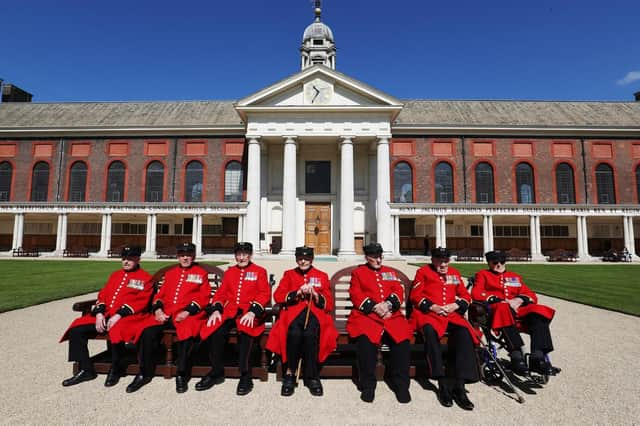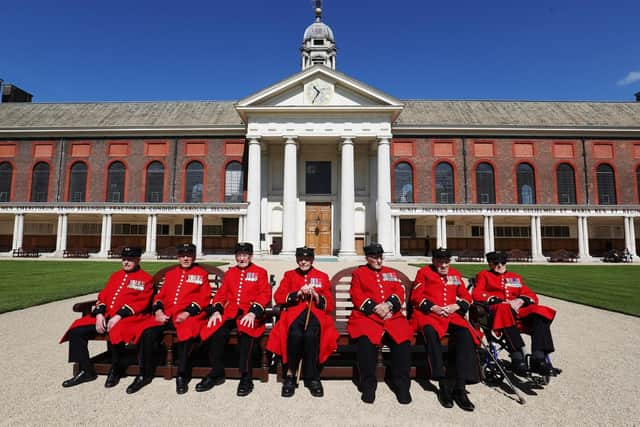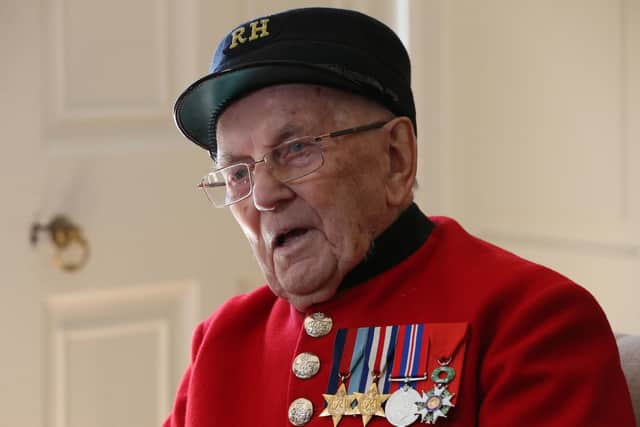D-Day veterans are honoured ahead of 75th anniversary of Normandy landings


Bill Fitzgerald, 94, who served with the Sussex Regiment, was 18 at the time of the landings and one of seven veterans who attended an event held in their honour at the Royal Hospital Chelsea on Monday.
He described how the soldiers knew they had a job to do, with only each other for support as they approached the beaches on boats.
‘We were the third one in on the day," he said.


Advertisement
Hide AdAdvertisement
Hide Ad‘We got so far in and then we hit something underneath so we knew we were going to get wet.
‘The Beach Master was there shouting out: “Get off this bloody beach and don't get killed”.
‘The water was full of bodies and they were mostly all Marine Commandos - but you couldn't take too much notice, all you were thinking of was helping each other.’
He went on: ‘We had our packs and rifles and it wouldn't have been much use landing without a rifle.


Advertisement
Hide AdAdvertisement
Hide Ad‘Looking at the bodies, you felt sorry about it, but you had a job to get on that beach and wait for your friends.
‘The worst thing is, when you lose some of your comrades coming in they might get shot.’
Mr Fitzgerald added: ’When we started out we were all 18 in 1943, we were young lads then. By the time it was 1944 we were really and truly first class soldiers, we knew what to do.’
Speaking about his time at the Royal Hospital Chelsea, he said: ’Most of the time we listen to what the others were doing in the Falklands. I don't think they fully understand. Our war was different to theirs.’
Advertisement
Hide AdAdvertisement
Hide AdMr Fitzgerald did not finish the campaign in France after being injured in a shelling on June 15.
‘We had a horrible day fighting and the tanks decided to stop in the woods,’ he said.
‘Believe me they shelled the hell out of us. All I can remember is getting a shell very near me, going up into the air and coming down and one of my friends putting my helmet over my face.’
His femur was broken in half and he was flown back to London on June 17, where his leg was clamped.
Advertisement
Hide AdAdvertisement
Hide Ad‘After I was discharged, I got my suit, I got my hat and you're outside the door saying “what's next?”’ he said.
‘There was nobody to talk to who could help you.
‘Luckily enough I saw my girlfriend again and we started going out with each other, and we got married in 1948.
‘We had two sons after that - it was the end of the war for me then.
‘My wife died in 2005. Before she died she said: “Look after the children if I go first”, and I'm still looking after them.’